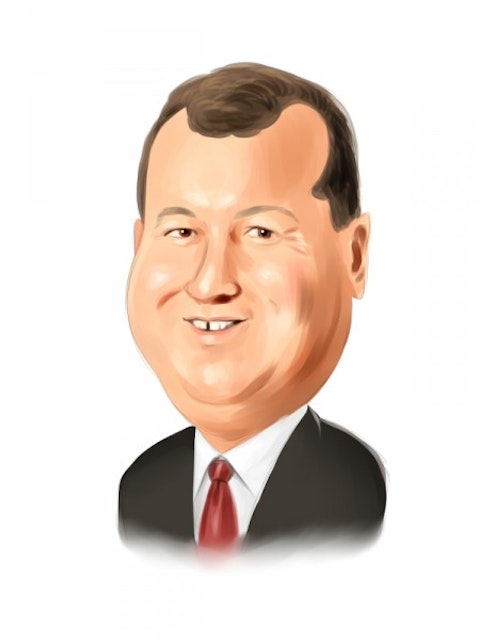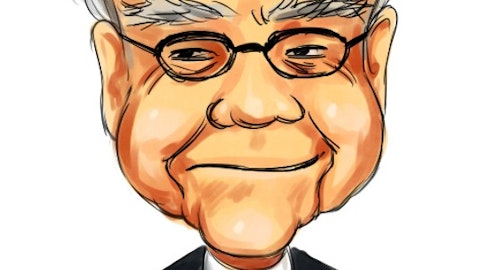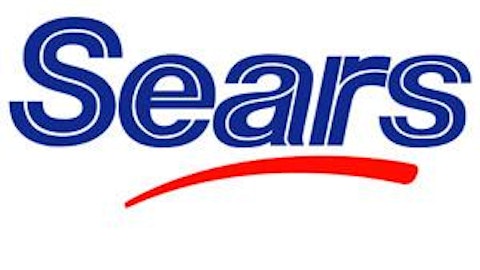Albert Einstein famously defined insanity as doing the same thing over and over again, but expecting different results. You could argue then, compellingly, that a significant percentage of management teams aren’t right. They continuously churn out average results — employing remarkably similar strategic mandates, chasing prices lower as they grab for market share, and generally speaking, doing the same things — and wonder why. A particularly crazy lot, by this measure, are property and casualty (P&C) insurers. Plagued by continuous cyclicality (of its own doing) and cutthroat competition, the P&C insurance industry’s historical returns have been average at best.
For copycat capitalism’s prevalence, Markel Corporation (NYSE:MKL) — a self-styled baby Berkshire Hathaway Inc. (NYSE:BRK.B) — stands apart. Management’s grown book value per share at an astounding 16% rate for 20 years running, on the strength of savvy underwriting and decades of market-beating investing by CIO Tom Gayner. But despite management’s history of value creation, a strange thing has happened.

Concerned the recently completed $3.5 billion acquisition of Alterra, a specialty insurer and reinsurer, won’t deliver the goods, Markel Corporation (NYSE:MKL) shares trade at 1.1 times book value. The market’s valuing Markel as the unwashed masses, as if management will create little to no value despite its superlative track record. This alongside several near-term catalysts — the transformative potential of the Alterra deal, hardening underwriting markets, and Markel’s increasing ability to compound shareholder value — provides a compelling opportunity for would-be buyers.
That, friends, is why I’m buying a position in Markel Corporation (NYSE:MKL) equal to 3% of my Real Money Portfolio.
Insuring profits
Dubbed an insurer, Markel is better thought of as three separate, but related, businesses: Insurance, Investments, and Markel Ventures. Unifying these segments is the “Markel Style,” a set of organizational values emphasizing integrity, effective capital allocation, and thinking differently. It has perhaps been best captured by Steve Markel, vice chairman, at the Markel annual shareholder breakfast in May 2013: “Executives shouldn’t get paid bonuses if shareholders aren’t doing well.” Rubber meets the road in executive compensation: Bonuses are tied to the five-year average growth to book value per share, a key measure of shareholder wealth accrual.
Core to the Markel enterprise is a near-religious emphasis on underwriting profits. That sounds stupidly obvious, but in practice, it’s less common. Insurers chase market share in good times, which eventually gives way to losses. More surprising: Many insurers consciously run losses on their underwriting operations and hope to make it up on investment returns. (Because insurance companies are paid premiums up front, profitable underwriting operations provide a costless, sustained source of investable cash, called float.) The trouble is, they’re often poor investors, so they lose twofold. The collective’s returns on capital are uninspiring, to say the least. Markel is unique. It’s good at both: insuring, and investing.
Insurance: Given a statistical software package, a few quants, and a lump of cash, insurance seems easy. But if the industry’s history is indicative, pricing risk isn’t a pure science. Underwriting profits are easy-come, easy-go. Moreover, it’s really competitive, and barriers to entry are nil. Edison’s blinding intelligence isn’t a pre-requisite to figure: A generic underwriting strategy is a loser’s game.
Understanding this, Markel Corporation (NYSE:MKL) management’s historically focused on niche, quirky markets — called excess and surplus (E&S) lines and specialty. A few examples: summer camps, bass fishing boats, and blacksmiths. In these segments, unique knowledge and limited market size limit competition, make pricing more stable, and make underwriting profits more consistent. That’s not to say they’ve escaped the inexorable underwriting cycle, but it’s a bit more palatable. For the 10 years to 2012, Markel’s lost money on its insurance operations only twice, despite record catastrophe losses and sustained pricing weakness.
| 2012 | 2011 | 2010 | 2009 | 2008 | 2007 | 2006 | 2005 | 2004 | 2003 | |
|---|---|---|---|---|---|---|---|---|---|---|
| Combined ratio | 97% | 102% | 97% | 95% | 99% | 88% | 87% | 101% | 96% | 99% |
With the recently completed Alterra deal, Markel Corporation (NYSE:MKL)’s premium volume will nearly double, and its footprint will change from one emphasizing E&S and specialty to E&S, specialty, large corporate accounts, and reinsurance. While large corporate accounts, in the right hands, offers returns and market dynamics similar to E&S, reinsurance is a much tougher lot. Competition is widespread, and when they occur, catastrophe losses are enormous. Further complicating things, hedge funds and other non-traditional vehicles have recently flooded the marketplace in search of “easy cash.” That’s made an already commoditized marketplace worse.
Investments: For any and all known life forms, carbon is the building block. But it’s nitrogen that grows and sustains. Likewise, while insurance is at Markel’s core, its investments have enabled growth. Lead by CIO Tom Gayner, a colorful and thoughtful character, Markel’s returns and process closely resemble those of the Oracle himself, Warren Buffett. Perhaps more than anything, the results tell the tale: a 10% annualized return for 20 years, versus 8% for the S&P. In Markel Corporation (NYSE:MKL)’s investments, Gayner seeks four qualities: honest and talented management, a well-fortified competitive advantage, a reasonable price, and the ability to sustainably (and profitably) reinvest excess cash flow.
Yet again, the nuances separate Markel from the masses. Where most insurers allocate the bulk of their investments to bonds, Markel invests up to 80% of its book value in stocks. Successfully executed, this tactical maneuver provides the wherewithal to supercharge growth in book value per share. And for Markel shareholders, it’s done just that.





